These Native American Herbs And Spices are not just legacy plants; they help restore biodiversity and have several other benefits!
The world has finally begun recognizing the value of indigenous, perennial plants in restoring diversity. Therefore, we have compiled a list of native American herbs and spices that lend stunning flavors, are replete with medicinal uses, and lure endemic wildlife back to your backyard.
Native American Herbs And Spices
1. Prairie Smoke
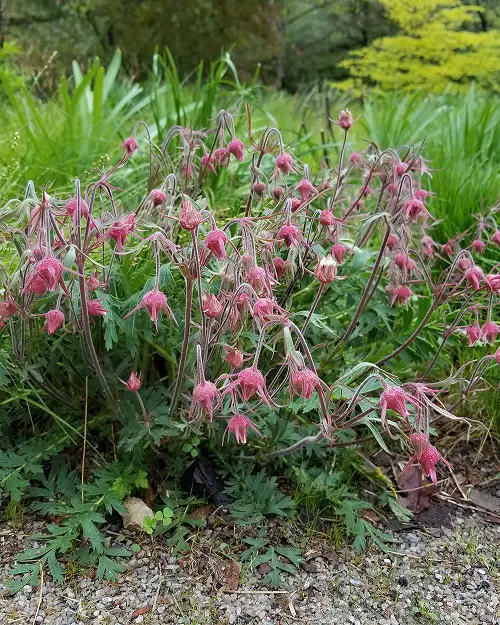
Botanical Name: Geum triflorum
Prairie smoke is a beautiful wildflower native to North America that is fast-depleting due to naturalized invaders. Its pink spring flowers turn into feathery seed heads in summer. Native Americans brewed tea from the roots to soothe sore throats, as eye wash, and even used concoctions in sweat lodges to reduce body aches and inflammation.
This rose-relative is a compact ground cover and tolerates different soil types. Prairie smoke provides nectar for early spring pollinators, including bees and butterflies.
2. Sumac
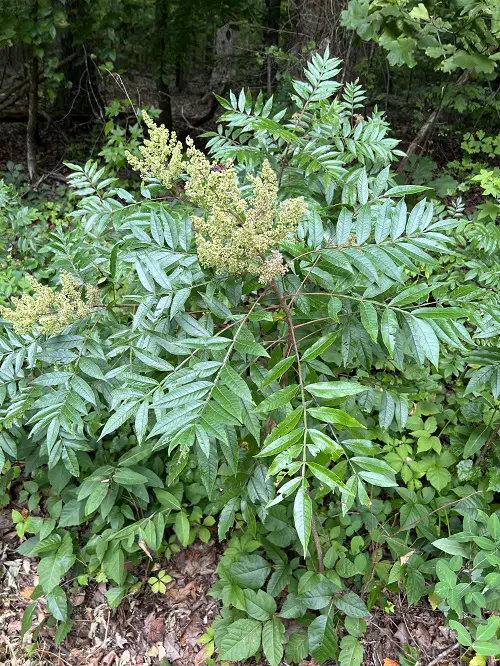
Botanical Name: Rhus
Next on our list is Sumac, a spice often associated with Middle Eastern cuisine. However, it has been used in North America for hundreds of years. Endemic to almost all American states, berries of staghorn sumac were used by indigenous peoples as tea.
This medicinal spice is excellent for salads and dressings and is cherished for its tangy and earthy taste. Use it as a marinade or meat rub, or add it to beverages like lemonade.
3. Californian White Sage
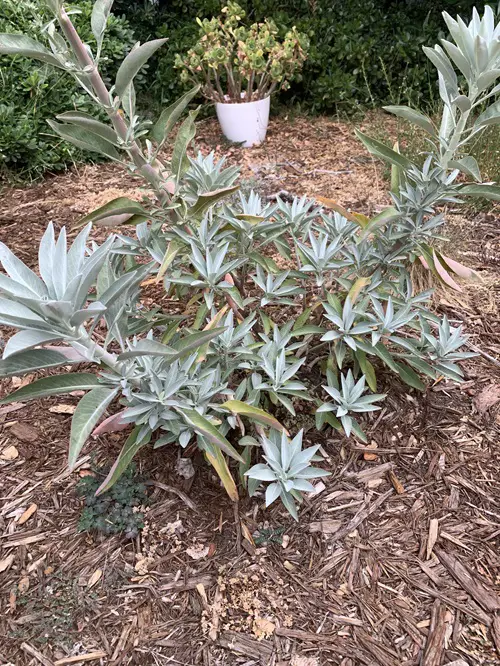
Botanical Name: Salvia apiana
Now, we come to the famous and sacred sage! Californian white sage is an evergreen perennial native to the United States and northern Mexico. Its seeds flavor a maize staple called pinole, and its leaves and stems are used in several other Native American preparations. White sage is used in spiritual cleansing and smudging.
Prevalent in today’s spiritual shopping culture, overharvesting for incense sticks is leading to its decline, affecting its natural ecosystems. This also impacts its pollinators, which include honeybees, bumble bees, carpenter bees, and hummingbirds.
4. American Mint
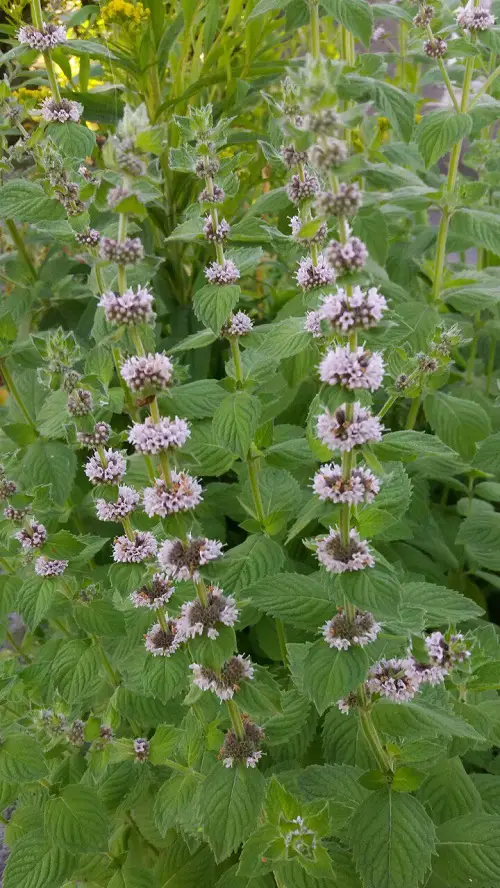
Botanical Name: Mentha canadenis
This species of mint is native to North America and Eastern Asia. Besides its flavoring role in salads, yogurts, and meats, many native tribes used wild mint to treat ailments, soothe toothaches, repel bugs, and even deodorize. The fruit of this plant is, however, toxic.
Producing dense spirals of lavender bell-shaped blooms, wild mint attracts pollinators like bees and butterflies.
5. Common Juniper
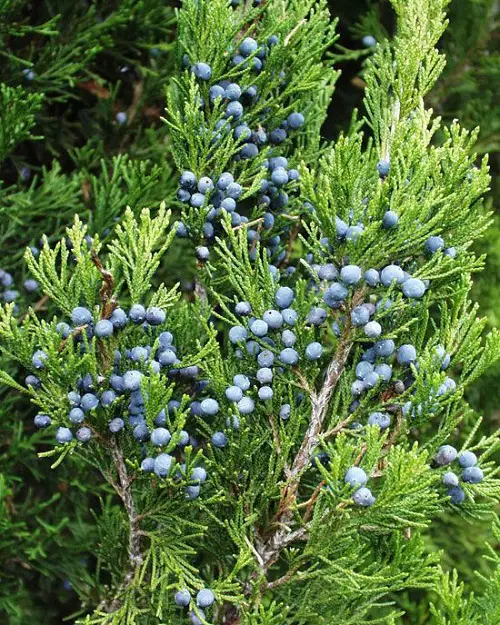
Botanical Name: Juniperus communis
Did you know that juniper berries are not berries at all? They are female seed cones from the evergreen conifer with a citrusy flavor. Juniper trees provide habitat and food for diverse wildlife, including birds like the American Robin, mockingbird, purple finch, and small mammals.
Used extensively in native medicine, juniper berries also flavor meats, sauces, and alcoholic beverages like beer, ale, and gin.
6. Nodding Onion
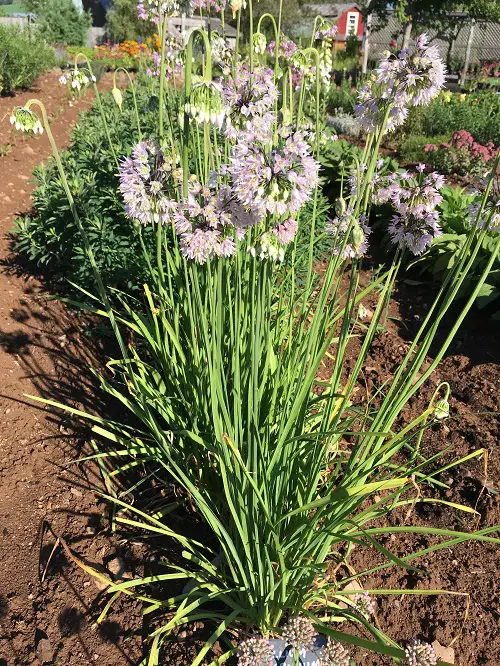
Botanical Name: Allium cernuum
Nodding onion is a small, ornamental flowering species native to North America with grass-like foliage and droopy lavender flower clusters on stems. The plant’s spicy bulbs and leaves were used as vegetables, for flavoring food, and as medicine amongst native peoples.
Attracting various beneficial bees, beetles, and syrphid flies, this plant also helps deter unwanted pests.
7. Swamp Milkweed
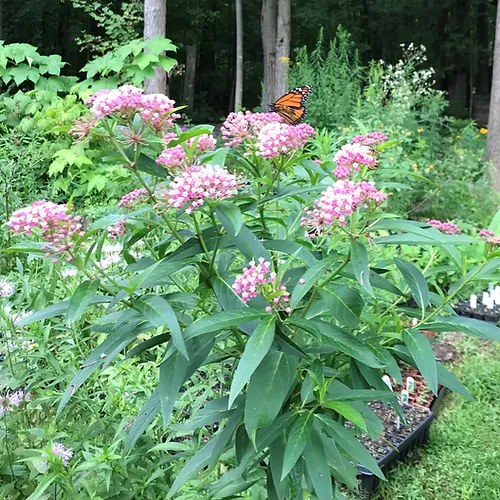
Botanical Name: Asclepias incarnata
Swamp Milkweed is a vigorous perennial wildflower used to rehabilitate wetlands. It is also the preferred host for the majestic monarch and queen butterfly species. The Chippewa and Iroquois peoples used their roots to strengthen the body and improve kidney health.
However, unless prepared properly, this plant can be toxic if ingested.
8. Wild Geranium
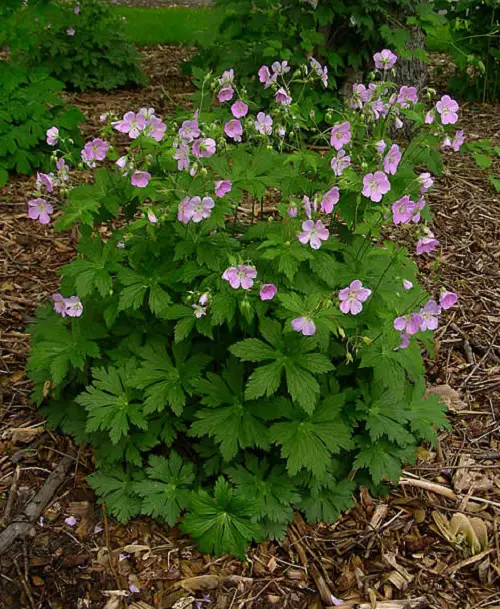
Botanical Name: Geranium maculatum
Next on our list of Native American herbs and spices is the wild geranium. This North American wildflower produces pretty pink blooms and grows best in moist areas. Traditionally, it was used to treat diarrhea and open wounds in Native American culture.
Different types of bees, beetles, ants, and syrphid flies visit its flowers!
9. Common Wintergreen
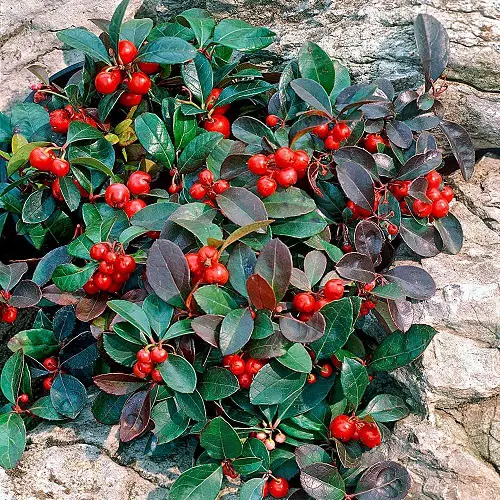
Botanical Name: Gaultheria procumbens
Wintergreen is a small plant with shiny leaves and bright red, spearmint-flavored, edible berries. Native Americans used its leaves to treat aches and pains, as a brew and a poultice. Comprising methyl salicylate, its oil is still used as a topical pain reliever and to flavor chewing gum, toothpaste, and candies.
One of the few sources of green leaves in winter, it is crucial food for wildlife, including black bears, white-tailed deer, wild turkeys, chipmunks, and others.
10. Indian-Physic
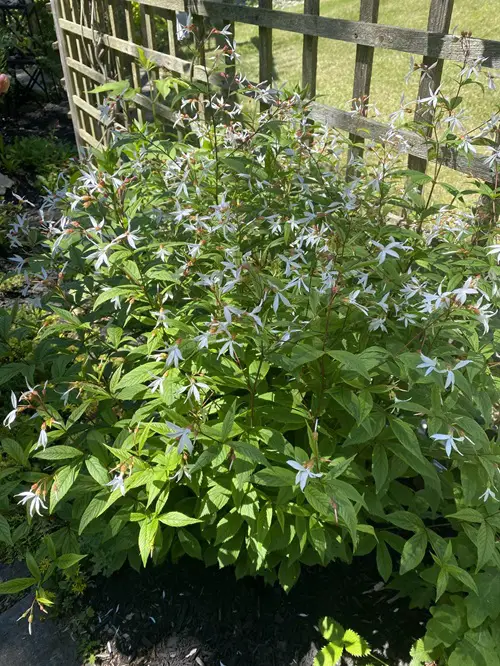
Botanical Name: Gillenia trifoliata
Finally, we come to the Bowman’s root, a North American native precious for its five-petaled star-like flowers that bloom in spring and summer. In native medicine, it was used as a laxative and an emetic.
Typically growing in woodlands, its blooms attract pollinators like bees and butterflies. It is also resistant to deer and rabbits, making it a good choice for maintaining native plant populations in areas prone to wildlife browsing.


